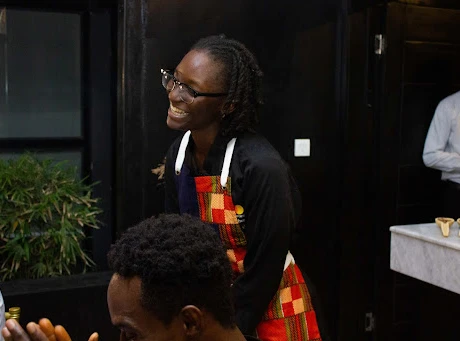
Fine dining doesn’t necessarily come to mind when people think about African food. Our continent’s food is one of the least explored globally, and it is rare to find African ingredients or cuisine in this culinary space. However, this is slowly changing; with restaurants like Ikoyi in London and Itan test Kitchen in Lagos, Nigeria, African cuisine is finally being seen for its versatility and richness, suitable for any kind of culinary experience. Now Chef Moyo Odunfa is joining the challenge of showing Nigerian food’s diversity and beauty with Awari, her pop-up experience.
‘Awari means discovery. It’s all about uncovering the beauty and diversity of Nigerian cuisine and learning more about who we are through experiencing the seemingly mundane aspects of our food culture in unique ways. It is a call to rediscover foods you think you know well and discover those you have experienced only from a distance.’
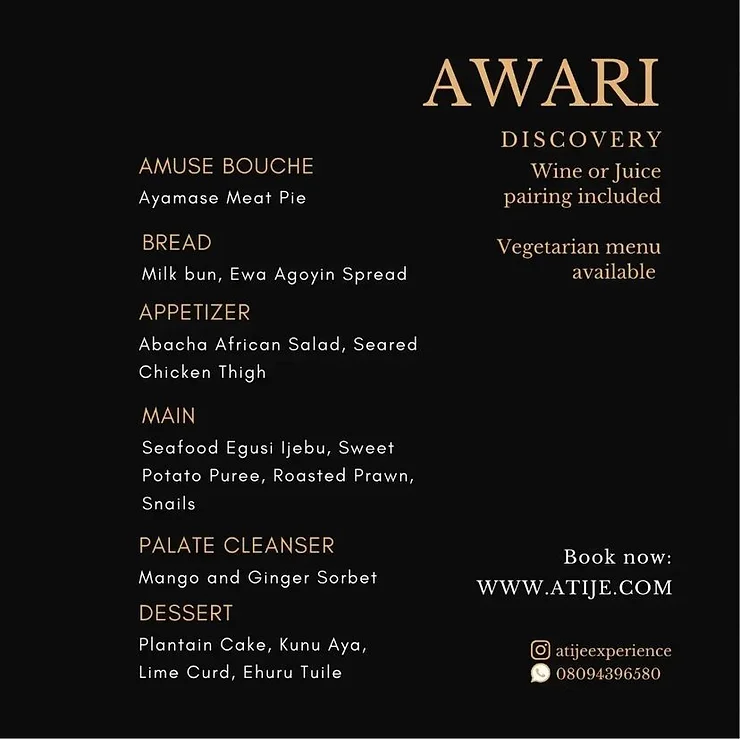
Before starting Awari, Swiss-trained Chef Odunfa worked at Itan Test Kitchen, a fine dining restaurant in Lagos, Nigeria. However, she didn’t always know a career as a Chef was what she wanted.
I did not know what I wanted to be or study at university for a long time. My interests ranged from chemistry and biology to art and economics to business studies and languages. But a google search changed everything. I was trying to find something that captured all my interests, and I found culinary arts. It has aspects of skills in food plating and presentation, science in food chemistry and commerce in the front of house and restaurant management aspects. Also, it allows me to work with my hands which keeps me alert and involved.
Once she realised her love for food, she wasted no time sharing her passion with the world. Her Instagram food pages first called @Shebites and now @Atijeexperience, which means ‘How We Eat’, show her eclectic takes on local ingredients. With dishes like Baileys Chinchin, Date and Agbalumo loaf cake, Strawberry barbecue sauce and Yaji tacos, she shows us the variety and availability of our foods, working with and spotlighting small scale suppliers and how we can bring them to life.
I like to play around with local fruits and understand how they can be used in sweet and savoury preparations. Nigeria has a wide variety of seasonal fruits, from Benue mangoes to Jos strawberries, passion fruit from Kaduna and dates from Jigawa. As these fruits come into season, it is very exciting to test out their possibilities and play around with them creatively.
My take on Nigerian food celebrates our flavours and ingredients even though it might include unconventional methods. For me, I start with an understanding of the fundamental dish or flavour I am trying to harness. Then I go from there, doing my best to understand the potential of the ingredients whilst maintaining the integrity of the flavour to create something familiar, nostalgic and explorative.
Her Awari menu was no different, with traditional and comforting ingredients being transformed to create an elegant, delicious, and fine-dining experience. One is left pondering how Chef Odunfa transforms foods that are often classed as ‘only for eating at home’ into the ultimate culinary experience.
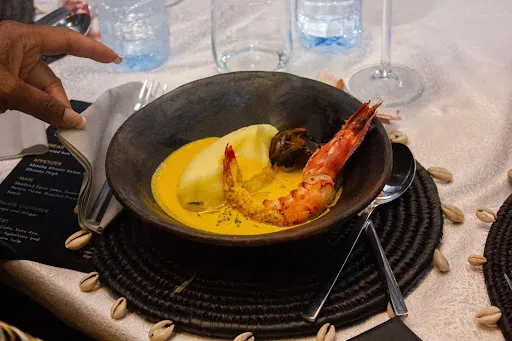
I start from local dishes we know and love and unconventional ones I would like to explore. I think about all the ways we enjoy or experience them; then I test out the possibilities of the different component ingredients. Through these processes, I can redefine the expression of that dish or those ingredients. With the mind of a chef, I ensure I combine the different components of each dish to give a dynamic yet balanced outcome. For me, there are no boundaries of tribe, culture or religion. I am happy to cross tribal boundaries to capture a better picture of who we are and how we eat as Nigerians in my menus.
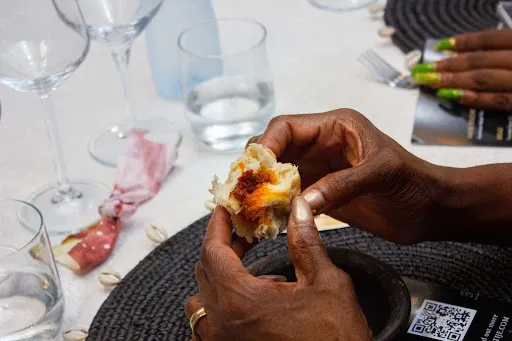
However, in planning her first event, the food was not all she had to worry about, especially embarking on such a feat in Nigeria, which is notorious for its hostile environment to budding entrepreneurs. So, we had to ask Chef Odunfa what the most challenging thing about being a young chef in Nigeria is.

Planning. Being a young chef, a lot of the organisation of events like Awari falls on me. I am the chef, but also the front of house manager, sommelier, event planner and the likes. These can take me away from my true passion, but I understand it is a means to an end, and as our team grows, we will have those who are passionate about each of these departments leading them. Being a chef in Nigeria is a whole different ball game; change is constant and rapid, but we can only do our best with what we have available to us. Often, situations that appear to be challenging give rise to our greatest accomplishments.
Ultimately, a career as a chef is challenging. However, the one thing Chef Odunfa wants to convey with her food is that:
Nigeria is beautifully diverse and how we eat gives a glimpse into our reality, our history and our ancestry. We have so much culture, tradition and folklore wrapped up in our food, ready to be explored. I hope that these menus can showcase some of the beauty of who we are, increase our interest in local ingredients and add to the body of work that defines Nigeria globally.
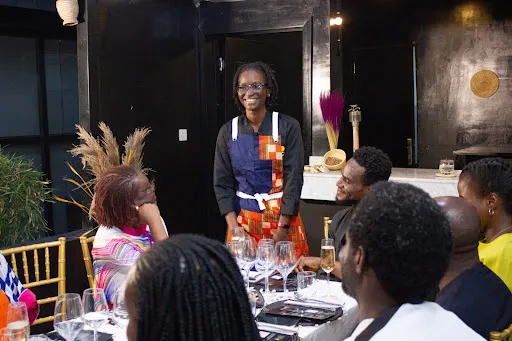
Community.

